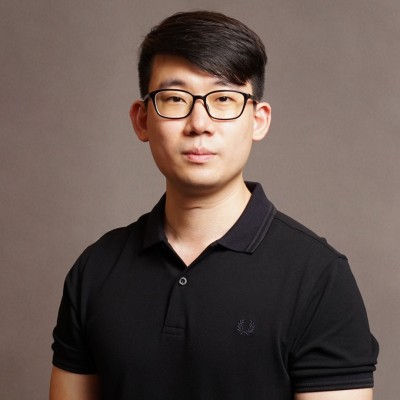
Dr Wang Yanchen
Contributing to Society
Dr Wang Yanchen, a PhD graduate of Lingnan University, took a liking to research while doing his two-year research-focused Master’s degree in Spain, a destination rarely chosen by Asian students who prefer to study in English speaking countries.
The Master’s in Business and Quantitative Methods programme at Universidad Carlos III in Madrid followed a tough regime. In Wang’s year, 20 students started out, but only 9 of them graduated. However, that did not deter Wang.
“I enjoyed doing research very much, even if it was quite tough. Originally I didn’t even know what “research-focused Master’s” meant, but after doing research for two years, my appreciation for it only grew,” he says. “I was keen to continue my studies for a PhD.”
Choosing School
Having already spent three years overseas – he spent his first year in Madrid on an exchange programme – he decided to move closer to home and applied for PhD programmes in Singapore and Hong Kong.
When he received a positive answer from both the department of finance and economics at Lingnan, he made a careful appraisal of the university’s capabilities before accepting a place. He was slightly concerned that both departments were a bit small.
“I checked the CVs and publications of professors on Lingnan’s website and found the publications and research output were awesome,” Wang says. Checking the website of the University Grants Committee (Hong Kong), he was impressed to learn that Lingnan’s department of economics occupied the fourth place in the latest research assessment exercise evaluating the eight public universities’ research output.
During his PhD, he also found that studying at a smaller department had many advantages. Students work with faculty closely, and it is easy to have a casual chat and ask for opinions or directions from professors without setting up a very official-sounding appointment.
To widen the scope of support, the university also invites speakers from different universities to give seminars on diverse topics in various research areas. “The students can talk to the professors after the seminars, share their research ideas and ask for feedback or comments,” explains Wang, who now is a research assistant professor at Lingnan’s department of economics.
His biggest challenge came when his chief supervisor left Lingnan. Luckily the draft of his PhD, which investigated how the Dodd-Frank Act enacted in the US affected the banks’ risk-taking and liquidity creation, was already done and, with his new chief supervisor, he chose another supporting topic, which became a 30-40 page second paper on privacy and intellectual rights.
“It can be disastrous for a PhD student if their supervisor leaves. Luckily, it was not a bad thing for me. Now I can do research in two fields,” he says.
He also appreciates the opportunity to tutor and teach undergraduate students, as he believes that this experience will set him apart from job applicants with PhDs from other universities. In his second year, he started teaching as a teaching assistant, leading tutorial sessions. Later he led two courses as a course instructor in calculus and statistics. He believes, teaching courses gives a real edge to Lingnan PhD graduates, because at other universities PhD students only get to lead tutorial sessions.
The teaching duty is not too heavy, according to Wang. It leaves him time to do some independent research and cooperate with colleagues and share research ideas. He appreciates the chance to focus on research, publish and prove his research ability.
Wang plans to stay in academics, not only because doing research is interesting, but also meaningful.
“If you do some important research focusing on a particular field for a couple of years and publish it in a high-ranking journal, you may feel that you have achieved something,” Wang says, adding, that teaching at university is not only enjoyable, but it makes him proud of his contribution to society and feel that what he is doing is meaningful.

